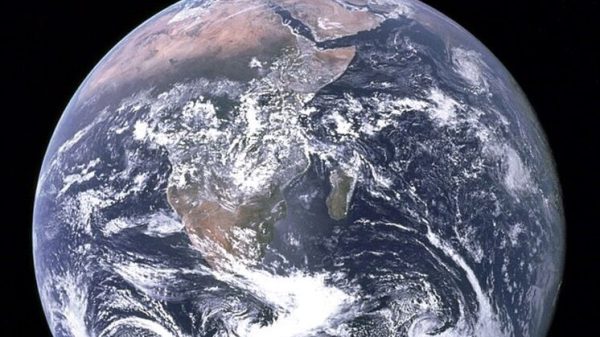When Jacinda Ardern appointed the veteran politician Nanaia Mahuta as New Zealand’s foreign minister, many seasoned political watchers were taken by surprise – as was Mahuta herself.
“When she put the opportunity to me, I was really, really pleased with the offer; I didn’t hesitate,” Mahuta says.
“It’s one of the portfolios where you’d love to make a contribution but it’s highly contested, so it was on my long list,” she says.
“But I was on her short list.”
The national broadcaster, Radio New Zealand, called Mahuta’s appointment “one of the biggest surprises of the cabinet reshuffle”, while the country’s largest newspaper company, Stuff, described it as a “surprise appointment” which sends a “great message”. At Asia Pacific Report, the decision was “a bolt out of the blue”.
The former Labour leader David Cunliffe worked alongside Mahuta for almost 20 years. He says she has a rare record of honesty, and has studiously avoided the ego-driven politicking of the Beehive, as New Zealand’s parliament is known.
It’s satisfying to be given the opportunity to serve in a way we can lift the glass ceiling, in offices that have often not been open to women.
Nanaia Mahuta
“I think it was an inspired choice, I have worked closely with Nanaia over the years and I think she is a person of good judgment, hard work and great strength,” Cunliffe says.
“She is deeply rooted in very positive, humane values, so I think she will bring that perspective to international relations. By her own whakapapa (ancestry) she is of royal lineage within the Māori world and that will help her take a long-term perspective. She’s very grounded in who she is and she’s very strong.”
Trail blazer
Mahuta, 50, has been in parliament for 24 years. She has held portfolios including trade, customs, Māori affairs and youth development.
Despite her long service and diverse experience, Mahuta has kept a low-profile, avoiding the limelight and dodging any association with scandal or gossip: “I’ve learnt what to worry about and what not to worry about – I don’t want to be distracted,” she says.
Nevertheless, she has set a series of firsts. In 2016 she became the first woman to display a moko kauae (sacred facial tattoo) in parliament. Now she becomes New Zealand’s first female foreign minister, and only the second Māori person in the role.
“It’s satisfying to be given the opportunity to serve in a way we can lift the glass ceiling, in offices that have often not been open to women,” Mahuta says.
“And importantly blaze a trail that can be different and unique, and carve out a real sense of opportunity as a country, but also for Indigenous people … So that’s what I am going to do.”
Her tribe, Waikato-Tainui, says she “brings tremendous mana [power] and skills” to her new role.
“Nanaia has the negotiation and diplomacy skills to represent Aotearoa on the global stage. She also brings a unique cultural perspective that’s especially relevant in these times of great geopolitical uncertainty,” a tribe spokesperson said in a statement.
It is this very uncertainty that influenced Ardern’s choice, Mahuta says.
“She, we, have acknowledged that these are really challenging and uncertain times with the global pandemic but also ways in which countries are responding and the impact on economies,” she says, citing the climate emergency, growing inequality, and loss of trust in democratic institutions and multinationals as pressing concerns.
NZ website withdraws author’s works after she criticises Māori foreign minister
Read more
“We are navigating unprecedented times. We’re realistic about the size of our country and the level of our influence, but we have always maintained our ability to take a values-based approach following the leadership of … Ardern.”
These values include manaakitanga (looking after people), collaboration,
kaitiakitanga (guardianship of the environment) and relationship-building.
“We will not be deterred by some of those big challenging issues like climate change, we will actually lean into that space. And do our bit to ensure that we can lead on some really difficult fronts and build a coalition of the willing.”
Family diplomacy
Mahuta has two children, aged 10 and 7, as well as a third “spirit” [lost] child. She says her background as “a mother, as a daughter, a sister, a woman” gives her an intergenerational grounding, which emphasises the importance of building strong relationships and community.
“Very early on in life I gained the skills of diplomacy primarily through my upbringing and the range of experiences I was exposed to, but most importantly understanding who I am as a Māori woman.
“Once you understand who you are, you are less intimidated by other people from other backgrounds and beliefs. And so you navigate your way through to ensure you’re trying to achieve an outcome in a way that recognises diversity is not a threat. And that if you want to build a more sustainable future or outcome you have to build consensus. I learnt those skills from a young age from my family and community.”
Mahuta says hints about how she will manage the high-profile foreign affairs portfolio can be seen in her “flax-roots” or grassroots politics. How she has handled community affairs is how she will manage international relations, she says.
Māori activist Tina Ngata says it is “well overdue that we have a wāhine Māori step into this role”.
“Having someone with the connections and commitment to Te Ao Māori comes with an expectation that we will no longer be left behind in these discussions.”
As a tribal member of Waikato-Tainui, Ngāti Maniapoto and Ngāti Manu, Mahuta has familial ties to the Māori king, and from a young age assisted her father, Sir Robert Mahuta, who was a famous Indigenous campaigner and negotiator.
Joanna Kidman, professor of Māori education at Victoria University of Wellington, says the appointment of Mahuta could lead to a new, Indigenous-influenced way of conducting New Zealand’s international affairs.
“I have been delighted with this appointment. Nanaia Mahuta has been a very hardworking politician for 20 years and she is so well known and so highly respected in the Māori world. It was really exciting,” Kidman says.
“Nanaia comes from a long tradition of tribal leaders. She comes from generations of leadership. She works really hard at flax-roots level, she can walk into a room of high-level diplomats and politicians, but she is equally at home on the marae (tribal meeting house).”
As the pandemic continues, Mahuta says she will have to “up her Zoom game” as she reaches out to foreign governments online. When asked if anything daunts her about the new portfolio, she is unflinching.
“I’m going to put my head down and work things out,” says Mahuta. “I’ll throw everything at it.”




















































Свежие комментарии